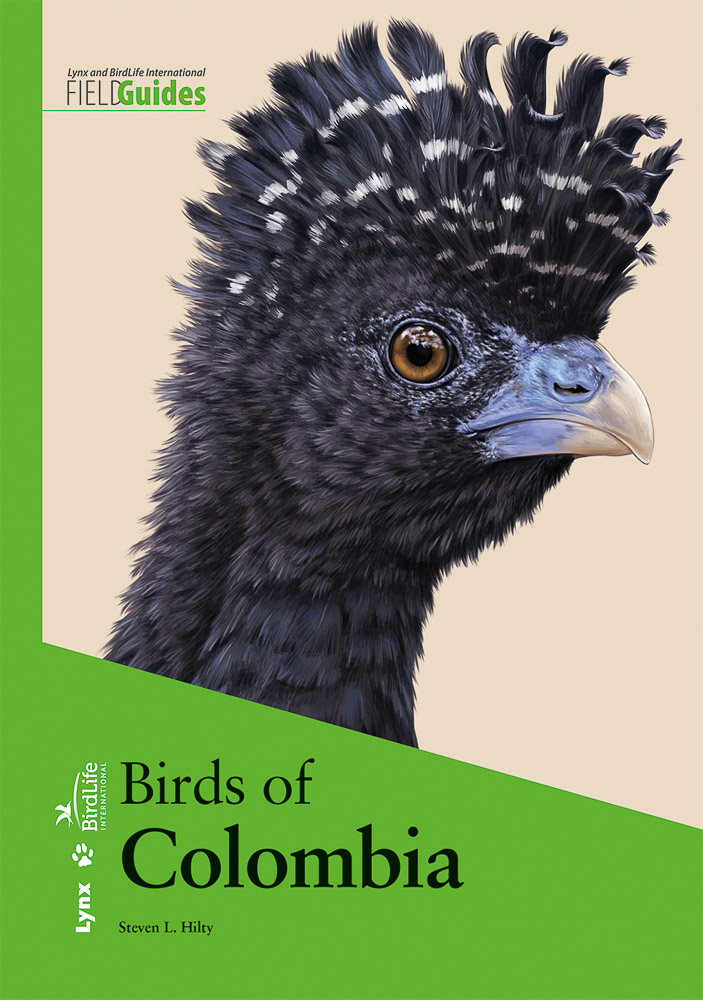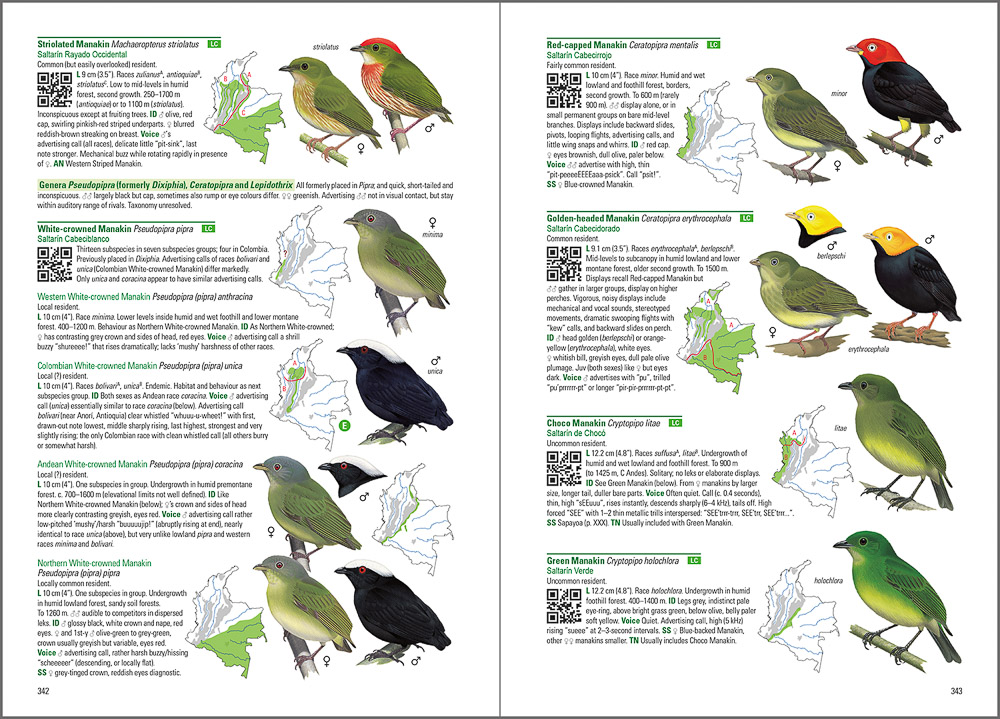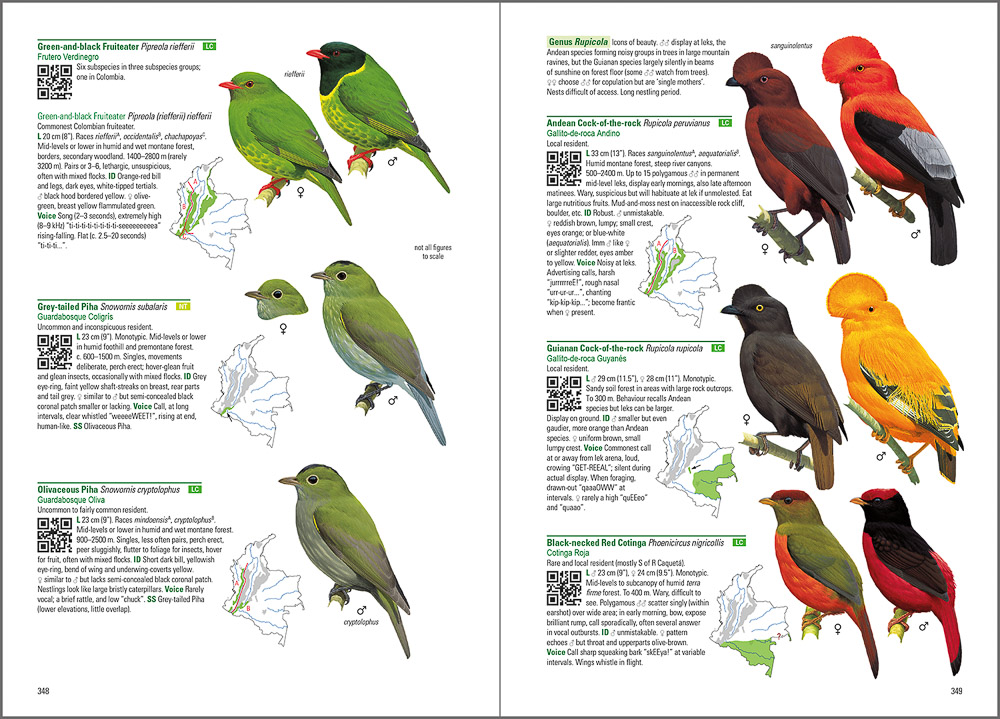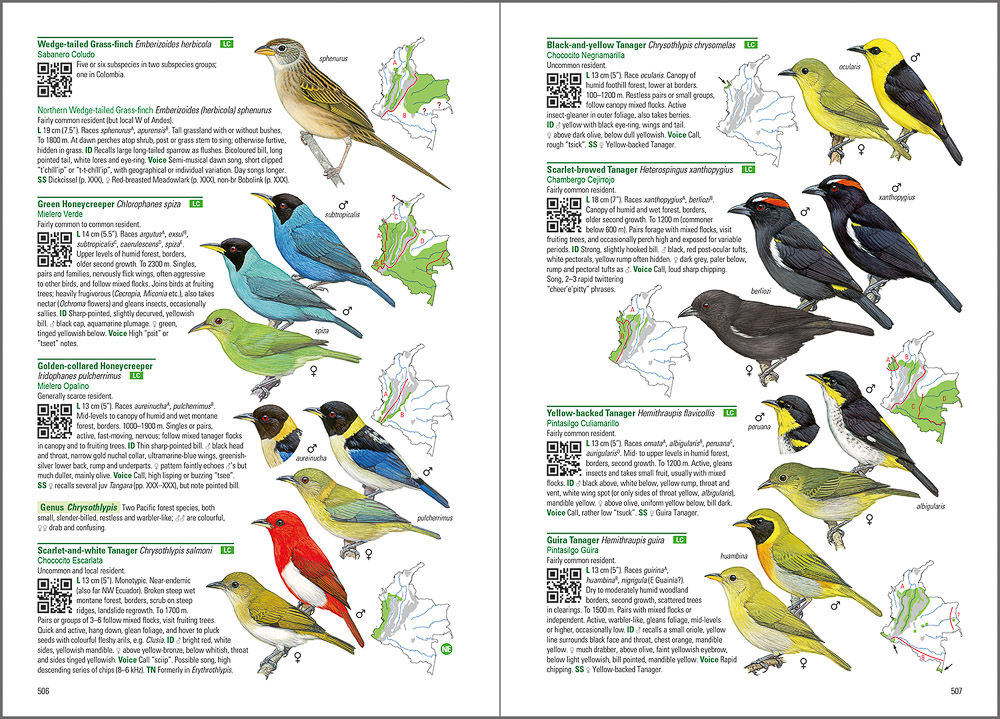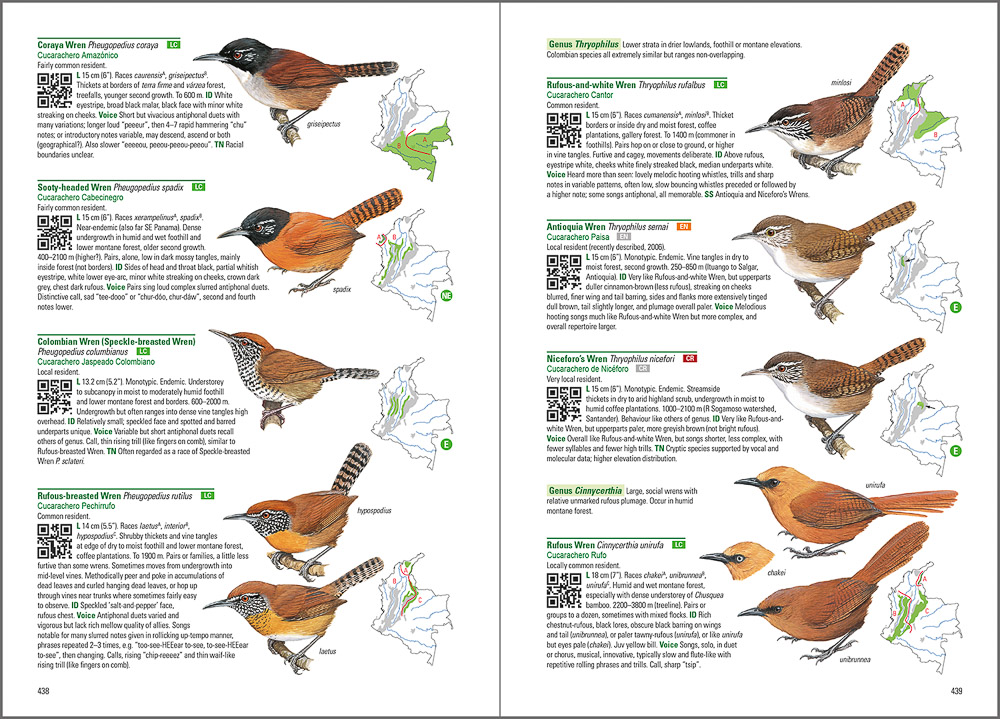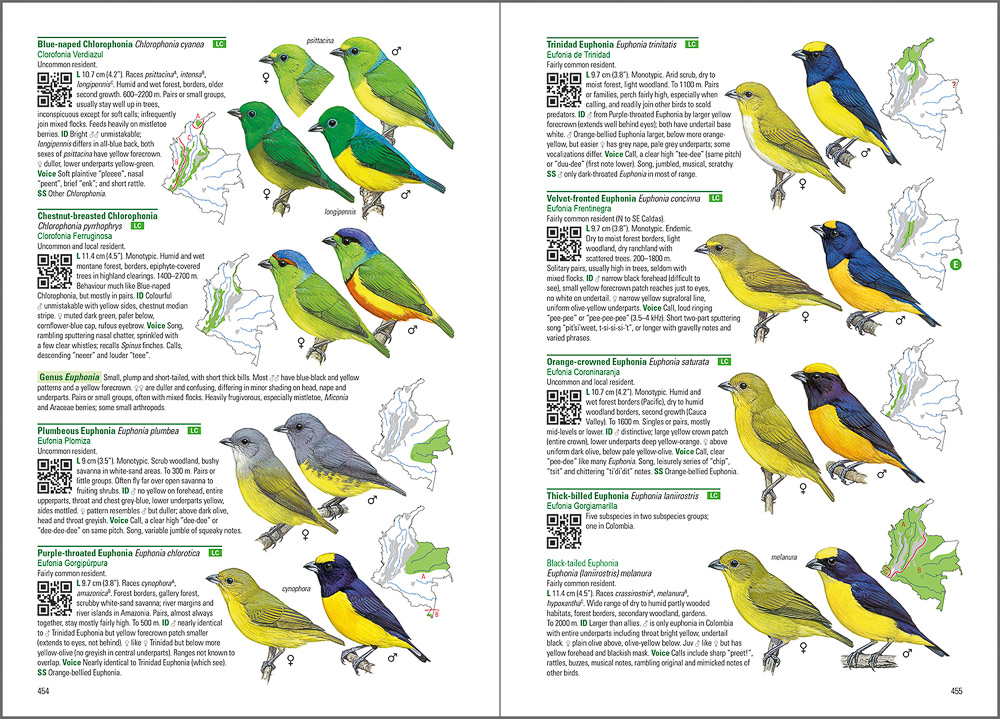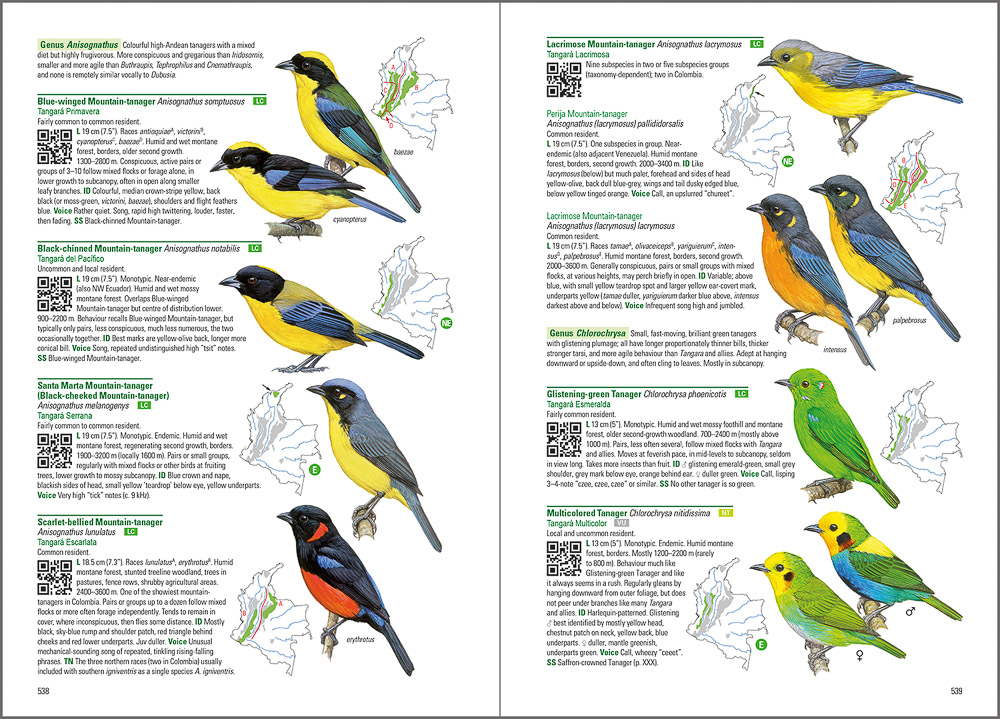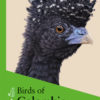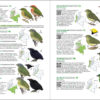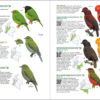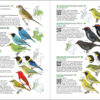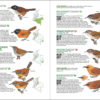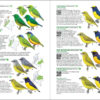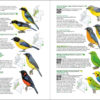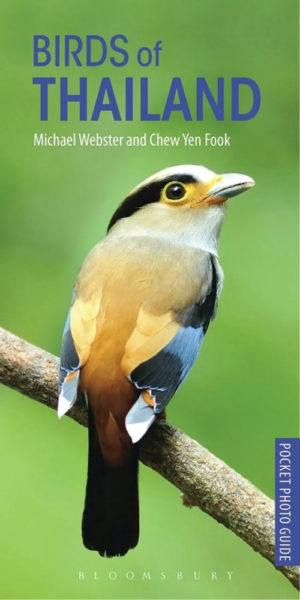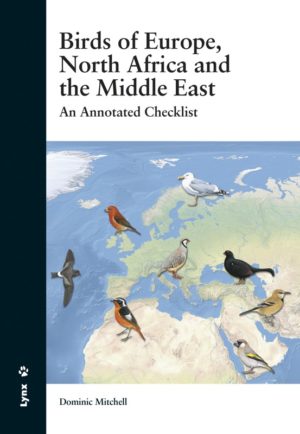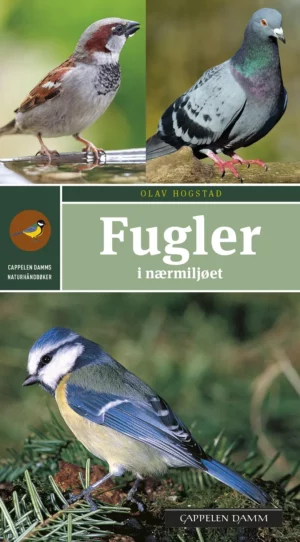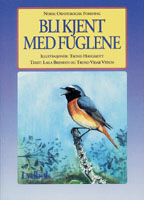Fra forlagets hjemmeside:
For birders, Colombia really is number one! Not only have more species been recorded there than in any other country, but almost one-fifth of the world’s birds occur in Colombia, packed into an area slightly greater than 1,100,000 km2. Stretching east to west from the Orinoco River to the Pacific Ocean, and north to south from the Caribbean to Amazonian headwaters, the country’s topography is remarkably diverse. Here, the Andes are separated into three ranges by two important valleys, the Cauca and the Magdalena, and there are two very important massifs, Santa Marta and Perijá, in the north of the country—in particular, the Santa Marta range is one of the great endemic hotspots in the world.
In recent years, a series of standard birding routes has evolved, many of them focused on the country’s privately and publicly owned protected areas, permitting keen birders to see nearly all of Colombia’s many special birds, from extravagantly plumaged parrots and hummingbirds to skulking antpittas.
Nevertheless, in South America the capacity to escape the beaten track and make novel findings is perhaps nowhere better than Colombia, as exemplified by the recent discovery of an apparently new species of antpitta close to the city of Cali.
- Taxonomy mainly follows the HBW and BirdLife International Illustrated Checklist of the Birds of the World with updates largely to follow the most recent molecular data adopted by eBird/Clements.
- Detailed texts covering status, habitat and behaviour, age, sex and geographical variation, voice, and confusion species.
- More than 3600 illustrations covering all species and distinctive subspecies, birds in flight, males and females, juveniles and non-breeding plumages, where appropriate.
- QR code for each species, linked to complementary audiovisual material.
- More than 2000 full-colour range maps for all regularly occurring species.
- Well-marked subspecies groups receive full accounts, and the distributions of subspecies breeding in the region are clearly mapped.
- Local species names included.
Features:
- 1965 species; 94 endemics, 101 near-endemics, 4 introduced, 42 vagrants.
- Over 3600 illustrations and more than 2000 distribution maps.
